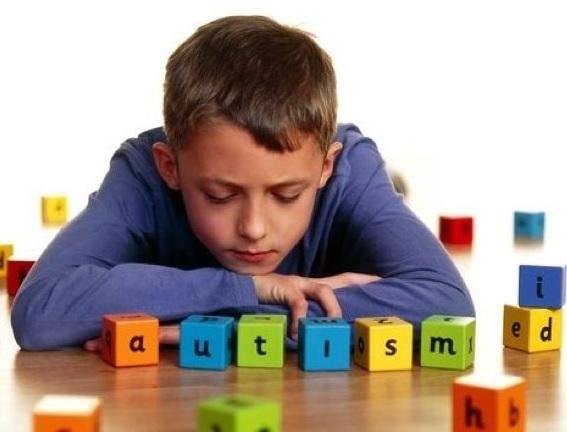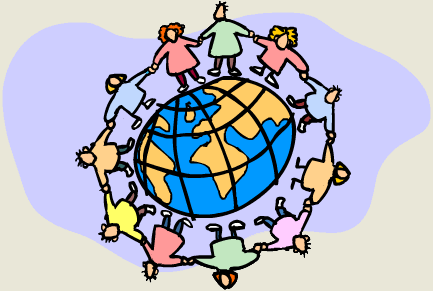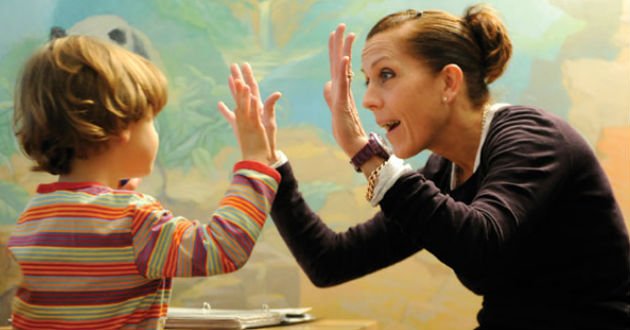Autism | What is it ? How is the behavior of these children in society? 👨👩👦👧
Autism, which is characterized by a stereotyped, repetitive and restricted behavior, and difficulties in relating, usually manifests itself in the first years of life. Know the symptoms in children.

This famous problem is seen at an early age and we have to build it as quickly as possible. Autism is a developmental disorder that affects people's abilities, fundamentally in terms of language development and social skills. Nonverbal behaviors, such as eye contact, facial expressions and gestures, are greatly affected, as well as forms of relationships with other children and even adults. Autism affects mainly males, and it is a disorder that has no cure.
How can we detect a child with autism ?
- Problems in verbal and non-verbal communication: the child with autism has problems identifying objects, does not imitate the gestures that others do and it will be difficult for him to talk during the first two years.
- Difficulties in relating to people: the child autist is not interested in interacting with other children and people. He tends to isolate himself, in family meetings he hides to avoid being observed. He does not usually maintain eye contact with people.
- Stereotyped behavior: The autistic has established a routine or specific rituals that are abnormal by their intensity at their age. For example, it is always with the same object touching it or meticulously maintaining the order of the shoes. When parents try to correct these behaviors, usually autistic people change their behavior and become aggressive.
- Hyperactivity - passivity and rejection of physical contact: the autistic at times, usually having an overactive behavior they move from one place to another, later they stay still and do not like to be bothered, they do not like to be stopped or they want them load.
- He is not aware of the possible dangers: the autistic has a lack of awareness in the face of dangers. For example, cross the street without paying attention.
- Extreme sensitivity: autistic people are very sensitive to sounds, touch, smell and taste. The noise of an alarm can disturb him and he will not stop crying. Burning smells and certain food tends to irritate them.
- Very restricted repertoire of interests, behaviors and activities: people with autism have special interests, which are not frequent in other people of their age (fascination with parts of objects, rotating parts, letters or logos) although the most characteristic thing is that They do not share their interests with others. The game tends to be repetitive and unimaginative. Stereotyped body movements, flips, swings, etc. can also appear
How we should treat them
- Consult with a specialist doctor. It is very important that your child has a correct diagnosis made by a health professional. The earlier autism is detected, the better the chances of progress it will have. While there is no cure, early intervention allows for greater improvement in the child.
- Create new forms of communication. Try to talk to your child with short, concrete sentences. Observe and try to know their way of expressing themselves, autistic children have particular ways of showing their feelings and states of mind, it is important that you can decipher it to be able to act accordingly. In this way, try as much as possible to establish a common language that unites them, such as gestures, art or music.
- Show him your love. It is essential to show support, support and affection. Show him that you care and that you want to share his experiences with him. Autistic children, having different ways of expressing themselves, often do not clearly demonstrate what they want, but you should not forget that this does not mean that they do not feel the need for love.
- Play with him. Sharing your games is truly important. Through the game you can achieve incredible advances, you can play to repeat words, sing songs, among others. But fundamentally, playing with images, autistic children learn 90% by visual means, therefore, try to incorporate images into their games to encourage new learning.
- Carefully handle routine changes. Children with autism have a very strict routine and its modification usually generates an imbalance. That is why, if you know that there is going to be a modification in the routine, such as a vacation trip, it is important that you try to communicate it beforehand, either with drawings or talking. It is also important, that you bring some objects or toys of your child, so that he feels safe and familiar.
- Encourage social contact. Stimulate eye contact, slowly take your head while talking to him and try to look at you, as long as this does not generate anxiety in him. You must do it with love and show confidence. You can also try to teach him to wave with his hand, every time you make the gesture of greeting him. Little by little, you can teach her little things, but always respecting her time.
- Keep calm. It is essential not to transmit to the child anguish, anger, or any other negative feeling. He is not really aware of what happens to him or guilty about it, it is for this reason that you should always try to remain calm and try to understand and support him.
Responsibility of all

In a society that strives to be increasingly influential, the right language must be everyone's business. We must make an effort and learn to treat people. Avoid hurting, belittling, minimizing or labeling should be the motto of those who want an egalitarian world, without borders, without distinction or difference
we must
- Protest for the efforts that exist to cure, institutionalize or medicate autistic people against their will.
- Prevent the elimination of the autistic genotype through abortions once genetic prenatal tests are made available.
- Demand tolerance for the atypical neurology of autism.
- Educate the public about the stereotypes of autism that they consider insulting or simply incorrect.
- Protest by the common attitude in the sense that autistic people are inferior.
- Protest about the attitude that being autistic is "bad".
- That not only the negative aspects of autism are emphasized.
- Eliminate the pejorative use of the term "autistic".
This topic is really very interesting and very wide, here I just wanted to give a little summary, but on the web we can find endless information. Here I leave a video where he explains a little more about this topic.
Informative reference
- Myers SM, Johnson CP (2007). «Management of children with autism spectrum disorders»
- Kirby, A. V., Little, L. M., Schultz, B., & Baranek, G. T. (2015). Observational characterization of sensory interests, repetitions, and seeking behaviors. American Journal of Occupational Therapy,
- https://es.wikipedia.org/wiki/Autismo
- https://salud.uncomo.com/articulo/como-tratar-a-un-nino-autista-3002.html
- https://www.webconsultas.com/bebes-y-ninos/psicologia-infantil/autismo-en-ninos-889
- http://www.elcomercio.com/tendencias/salud/pautas-identificar-hijo-autismo.html
Thank you for taking the time to read this publication. I hope you have a happy day, see you in the next. Do not forget to leave a comment about what you thought, thank you very much. @juanjdiaz89


Nice post and excelent information, ty for shared.
Thank you for taking the time to read
@originalworks
Excellent my friend
thanks bro for watching my post
As an important contribution I must comment that all autists are all different, so we should not try to do it alone, for that we exist the specialists, what one annoys example physical contact another likes a lot.
Excellent contribution, thank you very much for sharing. It must be taken into account